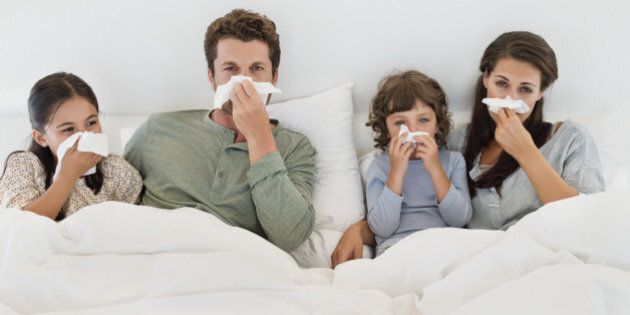 In times of the novel coronavirus outbreak, everyone should remain calm and vigilant, and take precautionary measures as the situation evolves. Over the weeks, we have received calls from concerned customers asking if their aircon would spread these infectious germs. So, we hope to share some useful information for anyone who uses air conditioners in Singapore.
In times of the novel coronavirus outbreak, everyone should remain calm and vigilant, and take precautionary measures as the situation evolves. Over the weeks, we have received calls from concerned customers asking if their aircon would spread these infectious germs. So, we hope to share some useful information for anyone who uses air conditioners in Singapore.
We all know that contaminated air conditioners can worsen certain health issues such as allergies and asthma problems. This is because air conditioners recirculate ‘old’ air within the same room, building up high levels of indoor air pollutants.
This contributes to ‘Sick Building Syndrome’, commonly associated to health issues like nasal congestion, respiratory problems and headaches.
There are many studies finding correlations between the use of air conditioners and increasing sickness in home and work environments. Our in-house microbiologist, Ms Sowmya Shivarama, agrees and explains that infectious organisms and allergens can survive and thrive in air conditioning systems. Transmisssion risk is low but people can possibly become sick when exposed to contaminated air.
Lack of maintenance can make air conditioners a perfect breeding ground for harmful microorganisms that thrive in cooler temperatures. Moreover, cold air also dries the membrane lining inside your nose and making it more vulnerable to viral infection. This is why even doctors agree having regular aircon maintenance is your best defence for a cleaner and safer home.
Air Conditioning Vs Novel Coronavirus
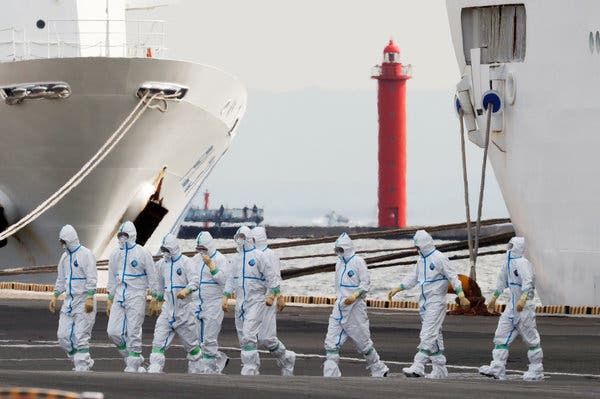 As more people onboard the quarantined cruise ship in Japan are getting infected, many are starting to question the risks of catching the virus through air conditioning systems. An expert of infectious diseases from Harvard Medical School, Dr Todd Ellerin advised that corona-viruses typically spread through droplets containing large particles that can only be suspended in the air for 3-6ft before dissipating. This means transmission through air is unlikely, unless a person is in close proximity of an infected source.
As more people onboard the quarantined cruise ship in Japan are getting infected, many are starting to question the risks of catching the virus through air conditioning systems. An expert of infectious diseases from Harvard Medical School, Dr Todd Ellerin advised that corona-viruses typically spread through droplets containing large particles that can only be suspended in the air for 3-6ft before dissipating. This means transmission through air is unlikely, unless a person is in close proximity of an infected source.
However, CNA reported that these respiratory droplets can spread farther when the air is cold and dry, similar to an air-conditioned room. Regular coronaviruses can also survive longer on cooler surfaces. This means contaminant air can spread more easily with air conditioners providing longer air flow reach.
There is currently no conclusive evidence to support the risk of transmission through ventilation devices such as air conditioners. Nonetheless, we recommend keeping ventilation devices clean and well-maintained to prevent any possible spread, especially given limited information.
New Updates
Singapore researchers found that Covid-19 patients extensively contaminate their bedrooms and bathrooms. Air samples were tested negative, but swabs taken from air exhaust outlets were positive. This suggests that virus-laden droplets may be carried by air flows and deposited on air vents (Source: CNA).
Government researchers have also confirmed that the coronavirus can linger in the air for at least 30 minutes and travel up to 4.5m. The virus can also survive for 2-3 days on surfaces with higher temperatures of around 37°C (Source: SCMP).
This new information reinforces the need to further clean and sanitize ventilation devices, like air conditioners, on a regular basis.
Draw In Fresh Air
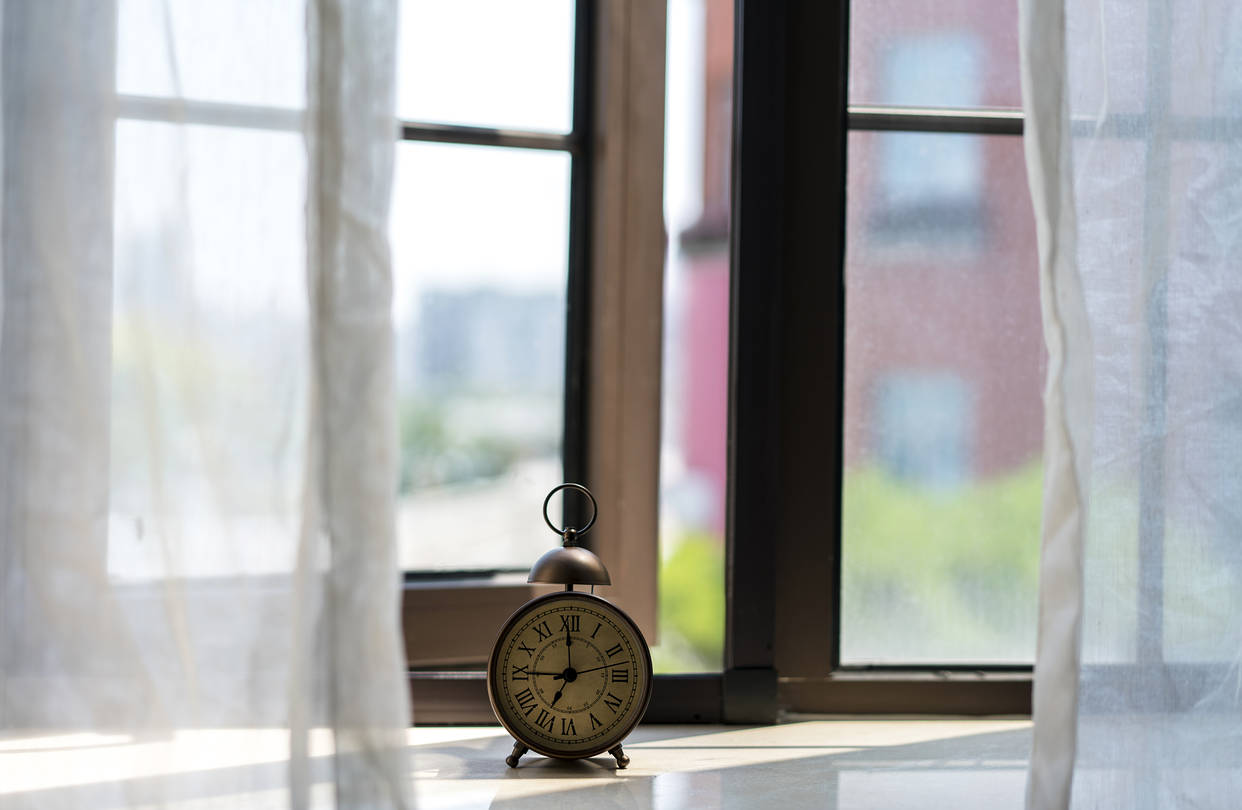 The recirculation of ‘old’ air can be a problem with the exposure to indoor pollutants such as particulate matters, chemical volatiles, and certain air-borne infections. The key is to maintain good ventilation. We suggest to leave a small window opening to maintain a reasonable exchange of fresh air from outside. There are exceptions of course, such as during undesirable hazy conditions.
The recirculation of ‘old’ air can be a problem with the exposure to indoor pollutants such as particulate matters, chemical volatiles, and certain air-borne infections. The key is to maintain good ventilation. We suggest to leave a small window opening to maintain a reasonable exchange of fresh air from outside. There are exceptions of course, such as during undesirable hazy conditions.
This is essentially the same idea as installing fresh air outlets in buildings to keep indoor air quality safe, which is also recommended by the American Lung Association.
SMART TIP: There will always be some amount of dust and debris in the air, even in a clean room. Wash your aircon filters regularly to circulate clean fresh air which is essential for good health.
General Servicing For Aircon
Our Basic Probiotic HydroClean is performed using our all-natural probiotic solution and a pressurised water blaster to achieve penetrative cleaning for your air conditioners. Our botanical-based solution contains millions of beneficial microbes that is capable of degrading unwanted contaminants at molecular level. This avant-garde technique proven to be safe, hygienic and eco-friendly. Unlike traditional methods, we do not use harmful chemicals (toxic) or common tools (germs spreading).
Here To Help – Additional Measures
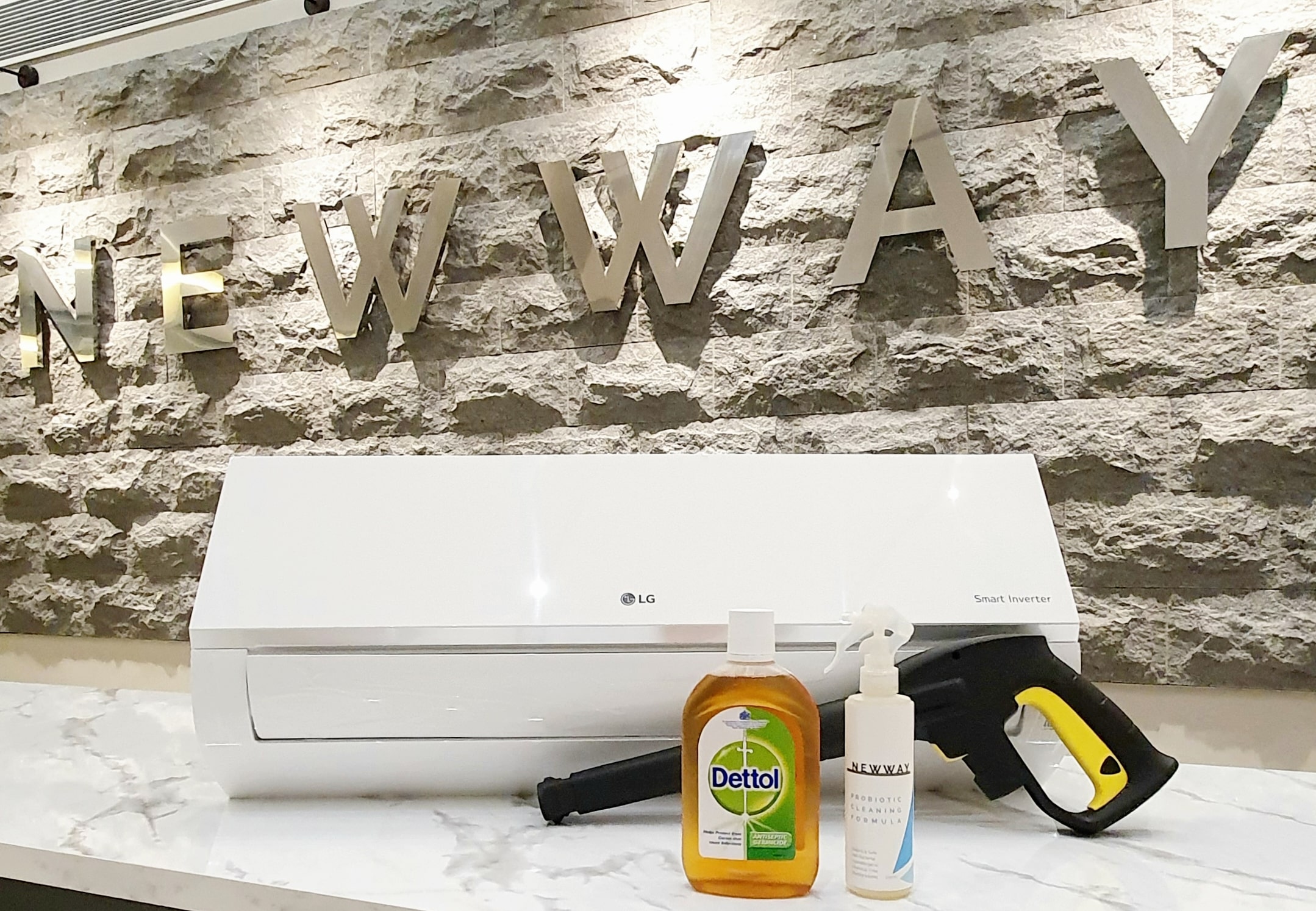 During the outbreak period, Newway will be introducing additional measures to ensure a higher level of sanitation for our maintenance services. In addition to our standard probiotic solution, we will perform a complimentary pre-wash for your air conditioners using an antiseptic germicide from Dettol. This follows with another round of probiotic wash to allow our active microbes to work without interference from the disinfectants.
During the outbreak period, Newway will be introducing additional measures to ensure a higher level of sanitation for our maintenance services. In addition to our standard probiotic solution, we will perform a complimentary pre-wash for your air conditioners using an antiseptic germicide from Dettol. This follows with another round of probiotic wash to allow our active microbes to work without interference from the disinfectants.
We have also taken necessary measures to ensure our workforce is healthy and work-ready. We are recording temperatures and disinfecting work tools and vehicles on a daily basis. There is also no recent travel history for all staff since December 2019. We will continue to maintain high work standards and practice good social responsibility during this period.
About Newway
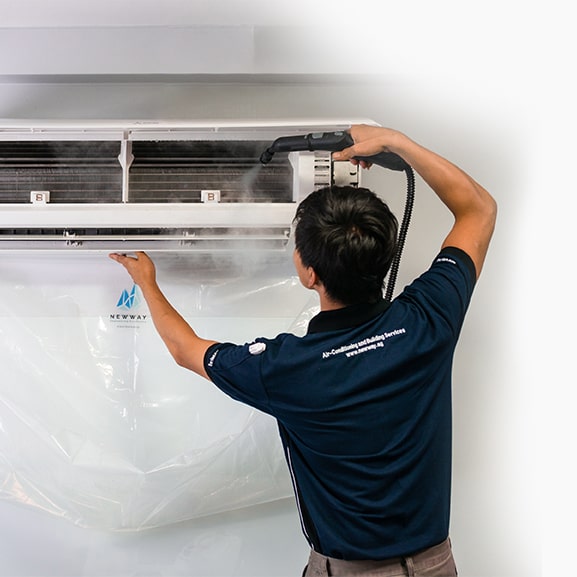
With more than 30 years of extensive experience, Newway is one of the most reputable air conditioning specialists in Singapore. We are dedicated to providing our customers with high quality and cost-effective solutions, over a wide range of integrated air conditioning services.
Back by a strong portfolio, Newway is widely regarded as the best air conditioning company in Singapore and has earned numerous industry accreditation and awards. We are also proudly featured on many trusted platforms such as MediaCorp, The Smart Local, RenoTalk and many more.

